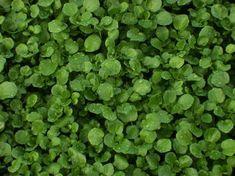
Researchers in a Watercress Alliance funded study have found that a plant compound in watercress may have the ability to suppress breast cancer cell development. It works by deactivating a signal in the body and thereby starving the growing tumour of essential blood and oxygen.
Scientists at the University of Southampton made the discovery and found that the compound, phenylethyl isothiocyanate (PEITC), is able to interfere with the function of a protein called Hypoxia Inducible Factor (HIF), which plays a critical role in cancer development. Working with Barbara Parry, Senior Research Dietician at the Winchester and Andover Breast Unit, the Southampton scientists performed a pilot study in which a small group of breast cancer survivors, underwent a period of fasting before eating 80g of watercress and then providing a series of blood samples over the next 24 hours.
The research team was able to detect significant levels of PEITC in the blood of the participants following the watercress meal, and most importantly, could show that the function of 4EBP1 was also measurably affected in the blood cells of the women.
PEITC is the phytochemical which gives watercress its peppery taste. Watercress is the richest natural source. PEITC has previously been shown in many in vitro and in vivo animal studies to have strong anti-cancer properties.



